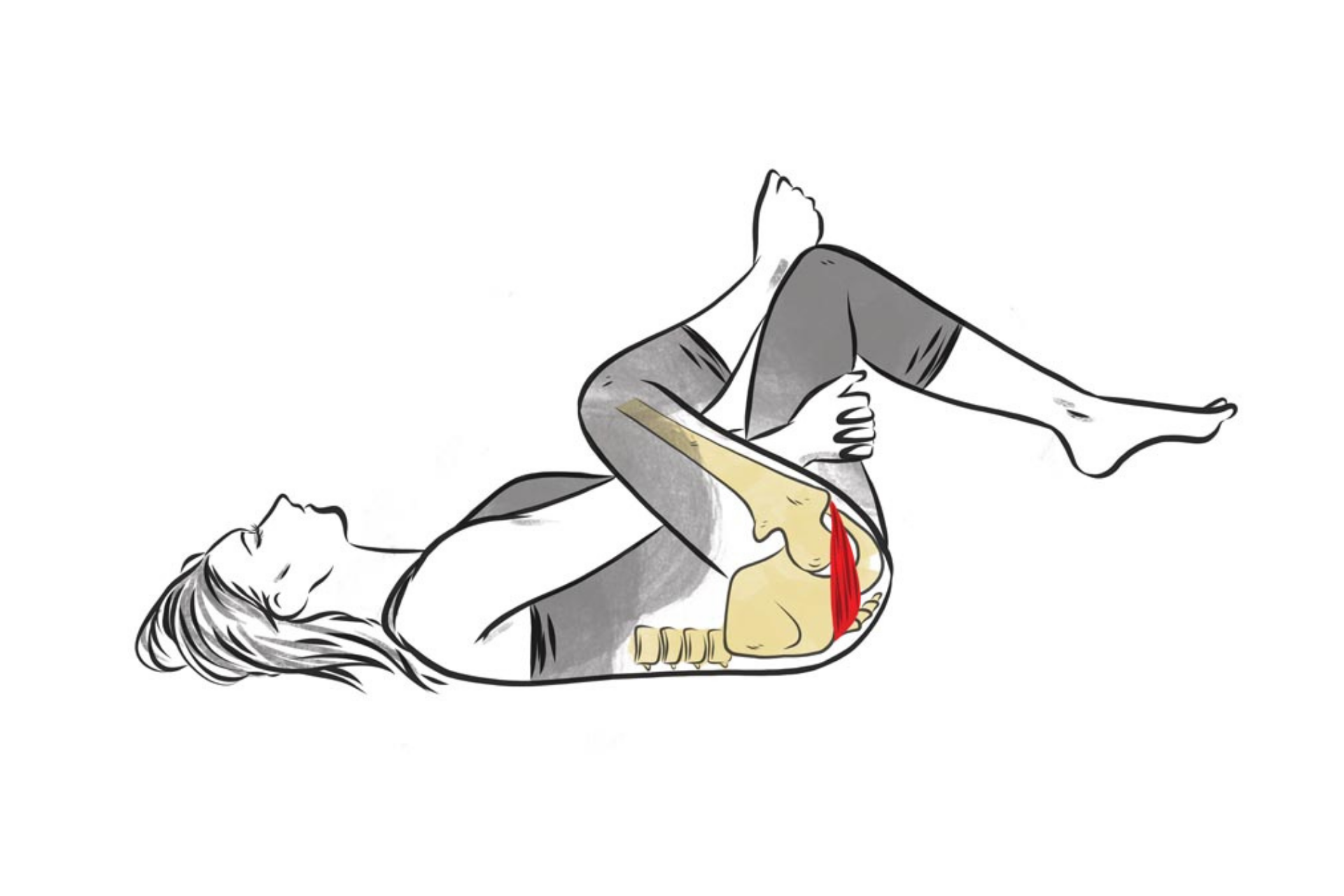Knee pain can result from various causes, one of which is elevated uric acid levels. Uric acid is a natural waste product in the body that’s usually eliminated through urine. However, when the body produces too much uric acid or the kidneys can’t effectively remove it, uric acid levels can increase, leading to a condition called hyperuricemia. When this happens, uric acid crystals can deposit in the joints, causing painful inflammation. This article explores how uric acid is linked to knee pain, the causes and symptoms of uric acid-related joint issues, and methods for treatment and prevention.
Understanding Uric Acid and Its Role in the Body
Uric acid is produced when the body breaks down purines, compounds found in certain foods and drinks, including red meat, seafood, alcohol, and sugary beverages. Normally, uric acid dissolves in the blood and is filtered out by the kidneys. However, if uric acid levels become too high, it may form crystals that deposit in the joints and surrounding tissues, leading to pain and swelling, especially in the knees and other weight-bearing joints.
How Uric Acid Causes Knee Pain: The Link with Gout
One of the primary conditions associated with high uric acid levels is gout, a type of arthritis. Gout typically affects the big toe but can also impact other joints, including the knees. When uric acid crystals accumulate in the knee joint, they can cause intense pain, swelling, and discomfort, especially during a gout attack. Here’s how this process works:
- Crystal Formation: When uric acid levels rise above the normal range, it crystallizes in the synovial fluid (joint fluid) around the knee. This crystallization is what triggers inflammation and pain.
- Inflammatory Response: The body’s immune system reacts to the presence of these crystals as though they were foreign substances, resulting in an inflammatory response. White blood cells attack the crystals, releasing chemicals that cause swelling, redness, and pain.
- Pain Flare-Ups: Gout attacks often come on suddenly, with episodes of severe pain and swelling. This pain is typically most intense in the first 12-24 hours of a flare-up and may subside gradually over several days.
Symptoms of Uric Acid-Related Knee Pain
Gout-related knee pain has distinct symptoms that help distinguish it from other causes of knee pain. Some of the key symptoms include:
- Sudden, Intense Pain: Gout attacks can come on rapidly, with knee pain intensifying within hours.
- Swelling and Redness: The affected knee joint may become visibly swollen and red.
- Warmth and Tenderness: The knee may feel warm to the touch, and even light pressure can be painful.
- Limited Range of Motion: Pain and swelling can limit the movement of the knee joint, making it difficult to walk or bend the knee.
Causes of Elevated Uric Acid Levels
Several factors contribute to elevated uric acid levels, increasing the risk of gout and joint pain:
- Diet: Consuming foods and drinks high in purines, such as red meat, shellfish, sugary drinks, and alcohol, can raise uric acid levels.
- Genetics: A family history of gout or hyperuricemia increases one’s likelihood of developing the condition.
- Medical Conditions: Obesity, high blood pressure, kidney disease, and certain metabolic disorders can impair uric acid processing, leading to elevated levels.
- Medications: Diuretics, aspirin, and certain other medications can affect how the body handles uric acid, raising the risk of hyperuricemia.
- Dehydration: Insufficient hydration can reduce the kidneys’ ability to flush out uric acid, causing levels to rise.
Treatment Options for Uric Acid-Related Knee Pain
Effective treatment for uric acid-related knee pain involves managing uric acid levels and relieving symptoms during gout attacks. Here are some key approaches:
- Medication
- Anti-Inflammatory Drugs (NSAIDs): Nonsteroidal anti-inflammatory drugs, such as ibuprofen and naproxen, can help reduce inflammation and pain during gout attacks.
- Corticosteroids: In cases of severe pain, corticosteroid injections directly into the knee can provide rapid relief from inflammation.
- Colchicine: This medication is specifically used for gout and helps reduce the inflammation caused by uric acid crystals.
- Urate-Lowering Therapy (ULT): Long-term medications like allopurinol or febuxostat can help lower uric acid levels and prevent future attacks by reducing crystal formation.
- Lifestyle Changes
- Diet Modification: Reducing intake of purine-rich foods (like red meat, organ meats, and seafood) and avoiding alcohol and sugary drinks can help lower uric acid levels.
- Staying Hydrated: Drinking plenty of water helps flush uric acid from the kidneys and reduces the risk of crystal formation.
- Weight Management: Losing excess weight can relieve pressure on the knees and reduce inflammation throughout the body, as well as lower uric acid levels.
- Limit Certain Medications: If possible, avoid medications that can increase uric acid levels, such as diuretics and aspirin, after consulting with a healthcare provider.
- Home Remedies and Natural Approaches
- Ice and Rest: Applying ice to the affected knee and resting during flare-ups can help reduce pain and swelling.
- Cherries and Vitamin C: Some studies suggest that cherries and foods high in vitamin C may help lower uric acid levels and reduce inflammation. Including these in the diet may be beneficial as part of a comprehensive gout management plan.
Preventing Uric Acid Buildup and Gout Attacks
Prevention is crucial for those with a history of elevated uric acid or gout. Here are some tips to reduce the likelihood of future gout attacks and keep uric acid levels in check:
- Regular Monitoring: Those at risk of high uric acid levels should have regular checkups with their doctor to monitor levels and ensure they remain within a healthy range.
- Moderate Exercise: Physical activity can help manage weight and improve joint flexibility, but it’s essential to avoid high-impact exercises during a flare-up.
- Limit Purine-Rich Foods: Choose plant-based proteins, lean meats, and low-fat dairy products over purine-heavy foods to reduce uric acid production.
- Avoid Rapid Weight Loss: Gradual weight loss is ideal, as rapid weight loss can sometimes increase uric acid levels.
Seeking Medical Help
For those experiencing frequent gout attacks or persistent knee pain, it’s essential to seek medical advice. A doctor may perform blood tests, imaging studies, or joint fluid analysis to diagnose gout or rule out other conditions.
Conclusion
Yes, high uric acid levels can indeed cause knee pain, especially when they lead to the formation of uric acid crystals in the joint, resulting in a painful gout attack. Managing uric acid-related knee pain requires a comprehensive approach that includes dietary changes, medication, and lifestyle modifications. By understanding the causes and risk factors of elevated uric acid levels, you can take proactive steps to prevent painful flare-ups and manage knee pain effectively. For long-term relief, it’s vital to maintain a healthy lifestyle, stay hydrated, and monitor uric acid levels, as well as consult with healthcare professionals to develop a personalized plan for managing gout and preventing future knee pain.





